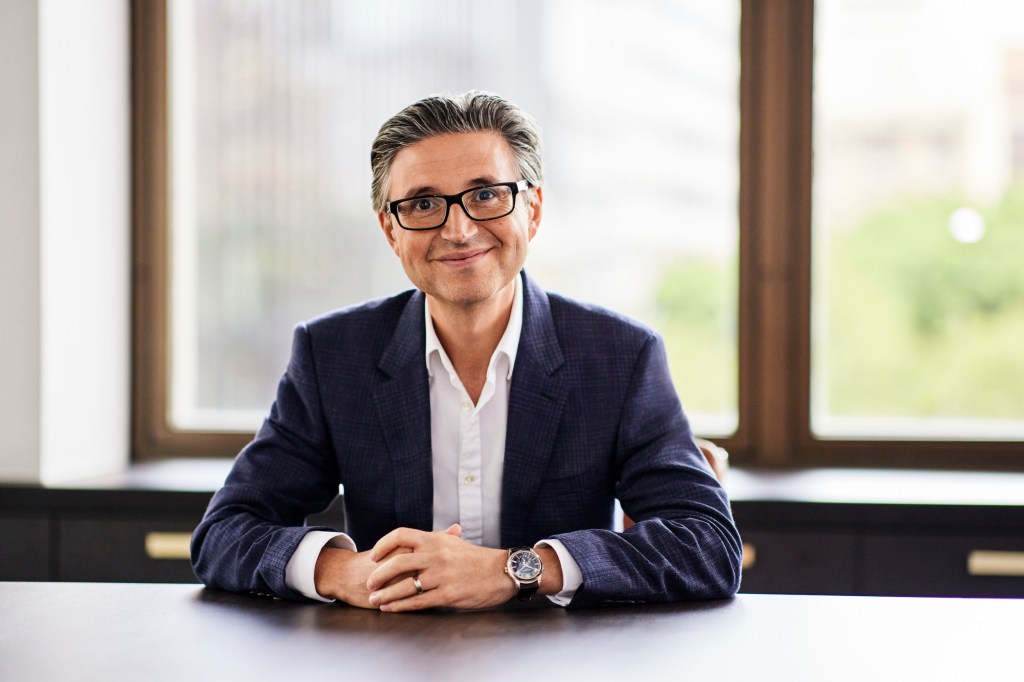Billion-dollar ETFs funds manager BetaShares boss Alex Vynokur is helping victims of the Russia-Ukraine war.
Like many children growing up in Soviet Ukraine, Alex Vynokur was taught to play chess and the piano at a young age. He also showed promised in mathematics, and his parents were encouraging of all his efforts. However, even as a child, Vynokur understood that the communist regime in which he lived did not provide the kinds of conditions an enterprising individual needed to flourish.
“The one thing that was very clear to me back in the Soviet Union was that the country was not going to provide anything to us. You had to be on the lookout for opportunities, because otherwise you weren’t going to get anywhere. I didn’t think about it explicitly at the time, but I think part of my entrepreneurial spirit was evident back then, as I was always looking for ways to avoid getting stuck with the system.”

“When we landed in Australia, it was like a firehose of exciting possibilities. From that moment on, I always hoped to have a chance to build my own business.”
– BetaShares CEO and co-founder Alex Vynokur
However, Vynokur never did find any opportunities to pursue. None of the type he was looking for existed.
“There was no entrepreneurial activity,” he says. “Setting up a private business was not allowed. Everything was owned by the state, and I observed a lot of inefficiencies.”
When the Soviet Union collapsed in 1991 and it became possible to leave the country, his parents began scouting for migration options. Vynokur was 15 when he and his family arrived in Sydney in 1994.
“When we landed in Australia, it was like a firehose of exciting possibilities. From that moment on, I always hoped to have a chance to build my own business,” he says.
‘A crazy idea’
It is no coincidence that as an entrepreneur, Vynokur has focused on exchange traded funds (ETFs) because he believes that they “democratise investment.”
ETFs combine the benefits of being low-cost, like an index fund, with the convenience of being quick and easy to buy, because they are exchange-traded. There is no need to fill out paperwork in order to buy and sell, and investments do not require huge sums.
When Vynokur launched his exchange traded funds (ETFs) company BetaShares in 2010, ETFs were relatively unknown in Australia.
“Back then, when I spoke about ETFs, people often thought I was talking about EFTPOS,” he says with a laugh.
It was also a time when bruised economies were emerging from the Global Financial Crisis. Vynokur encountered many a naysayer, but remained undeterred.

“Everybody was extremely despondent about the markets and the world of investments,” he says. “The idea of building an investment firm at a time when nobody wanted to talk about investments sounded crazy to some people.”
ETFs turn mainstream
However, Vynokur saw an opportunity and wouldn’t let go: Australia’s compulsory superannuation system. Today, a significant portion of self-managed super funds are adopting ETFs to help them achieve their financial goals.
Over time, ETFs also became the go-to investment for hundreds of thousands of Australians, and they are especially popular among many young people – Vynokur says it is often the first investment they ever make. Today, BetaShares has $24 billion funds under its management.
Vynokur is proud that he is making investments accessible to a much wider group of Australians, especially as property investments remain out of reach for many.
“The world of investment has been shrouded in mystery and misconception,” he says. “Historically, most people held the view that you needed a lot of money to invest. With ETFs you can buy a very diversified portfolio of shares or bonds – or anything else you want – with a small amount of money.”
For example, BetaShares manages a fund called DHHF, which is its diversified high growth fund. It owns thousands of stocks beneath it, so it provides exposure to thousands of individual securities.
“You can create a regular investment plan with $50 or $20 going into it every week – whatever amount you choose,” says Vynokur. “Ten years ago, you’d have needed millions of dollars to purchase such a diversified portfolio of global securities.”
A humanitarian crisis calls
Vynokur’s wife is also of Ukrainian heritage and they had returned to Ukraine as a family for regular visits over the years. They witnessed the country’s economy developing after the fall of communism.

When war broke out in Ukraine in February, Vynokur initially felt paralysed with shock and despair. They were consumed with grief for the situation faced by their friends and family members.
“Kyiv is a sophisticated city,” he says. “You can sit and drink a coffee and it feels like you’re in Sydney. It’s just crazy to think that a country has been transformed from peaceful existence into a situation where you have missiles flying over your head and sirens going off.”
As millions of Ukrainians began pouring into Poland – many on foot – Vynokur realised that he had to do something to help. He and his wife began donating their personal funds to supply medical equipment, medicines, food and shelter. Then they started buying ambulances, which were procured from Germany and transported into Ukraine via Poland.
Some of Vynokur’s friends told him that they wanted to donate as well, so he decided to set up a registered charity. The United Ukraine Appeal was launched in July and became Australia’s first charity entirely dedicated to supporting victims of the Russia-Ukraine war. Vynokur personally covers all the costs of running the foundation, so that every dollar donated goes directly to humanitarian relief.
The foundation has expanded its activities to include sourcing hospital beds and it has built bomb shelters for thousands of people. It recently evacuated 100 blind children, who are experiencing heightened distress from hearing bombs go off and the wailing of sirens. Many are orphans. Various arrangements have been made for their care, including at a specialist facility for the vision-impaired in Italy.
Vynokur is not hopeful that the end of Russian aggression is near, but he is confident that the people of Ukraine are resilient and will never succumb to foreign occupation. And whatever happens, he is in it for the long haul.
“I feel that our foundation will have a place under the sun because there will be a need to help people long after the war is over. Rebuilding the country is going to be a monumental task.”
For more information or to donate to the United Ukraine Appeal, visit https://www.theukraineappeal.org/
